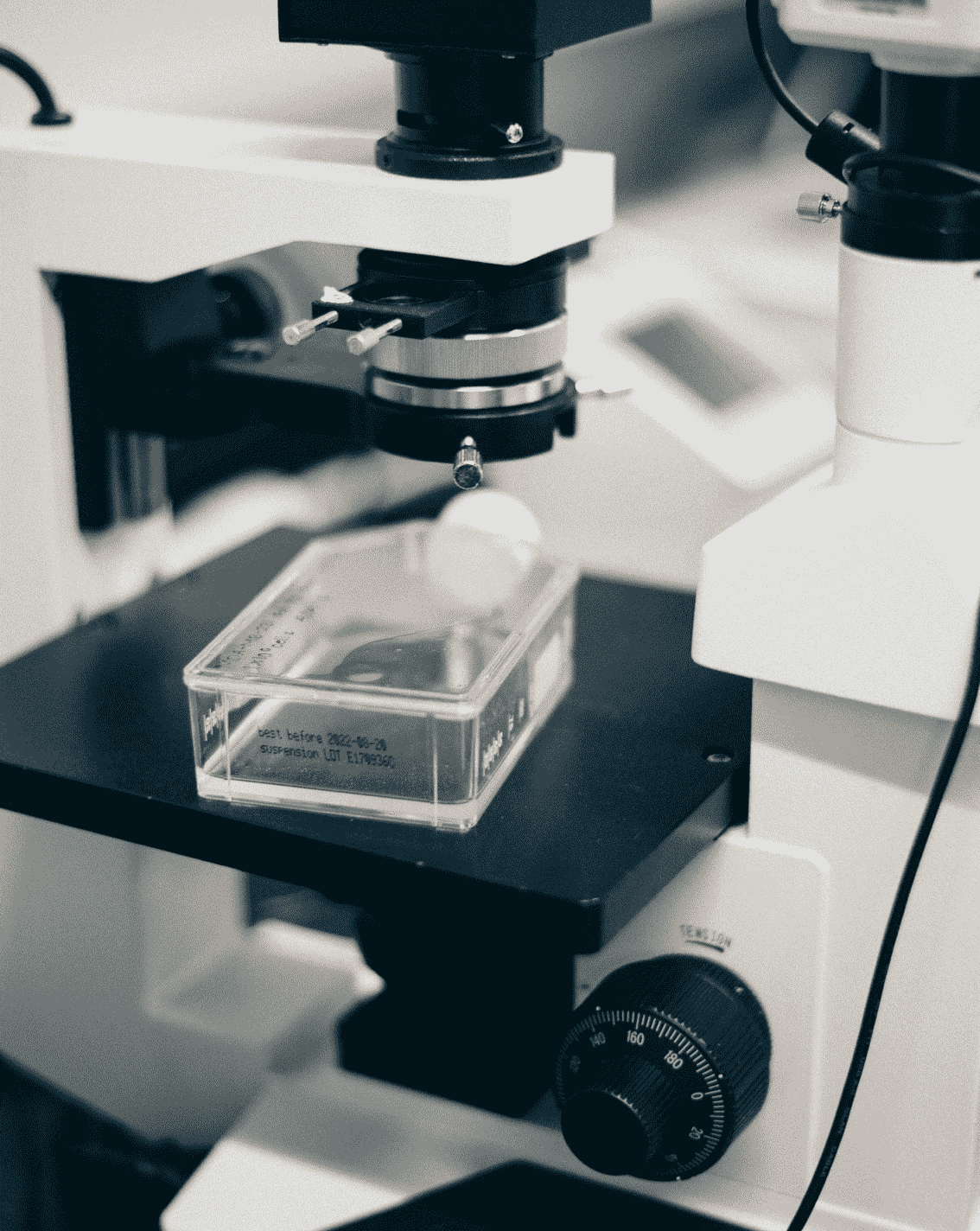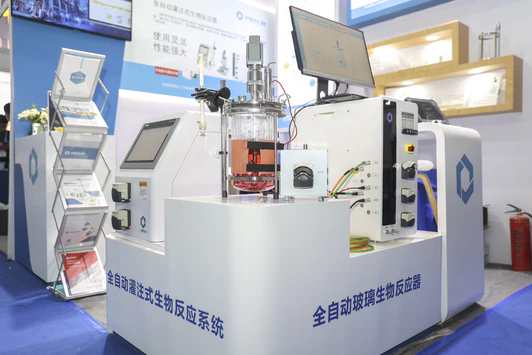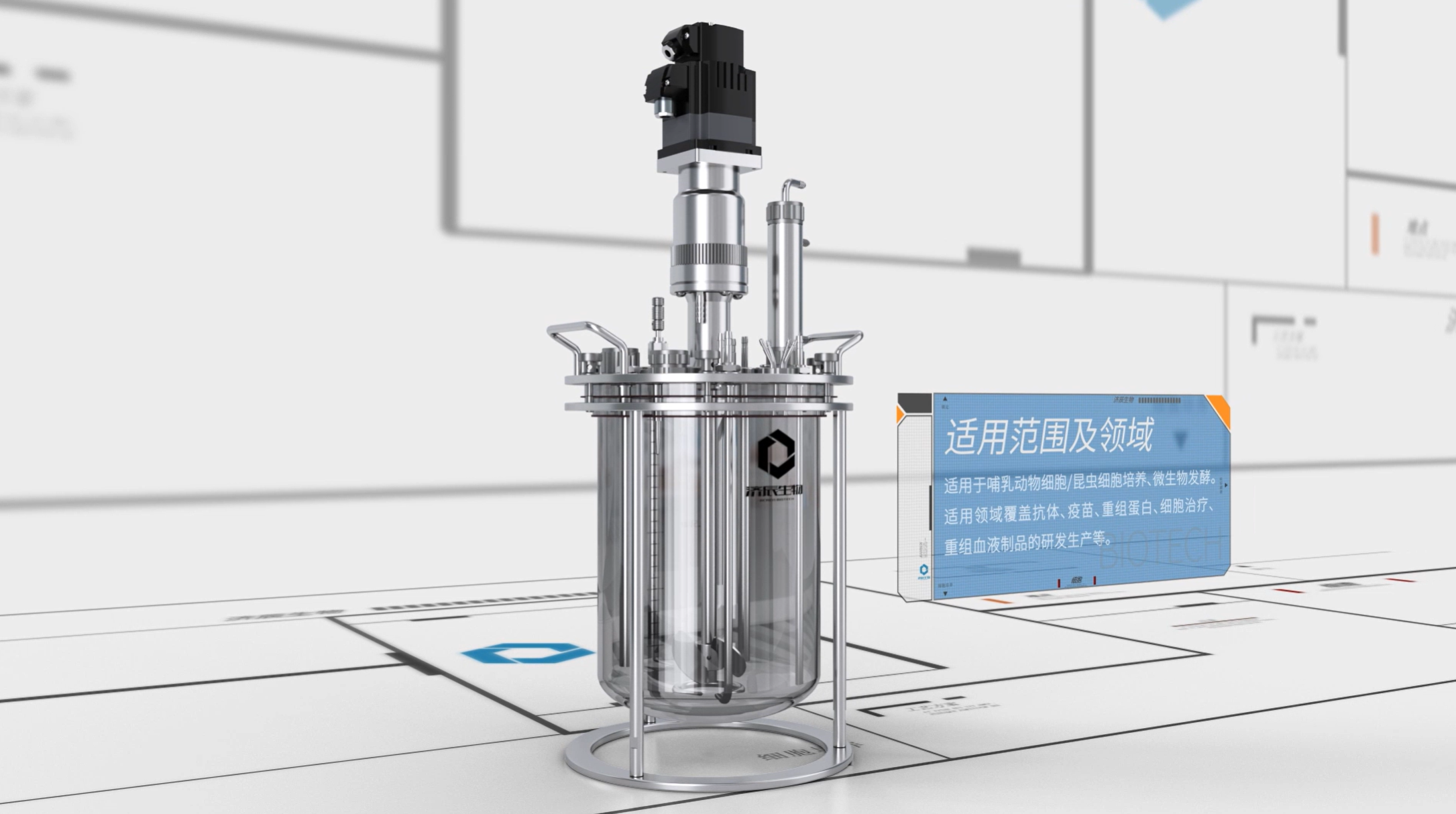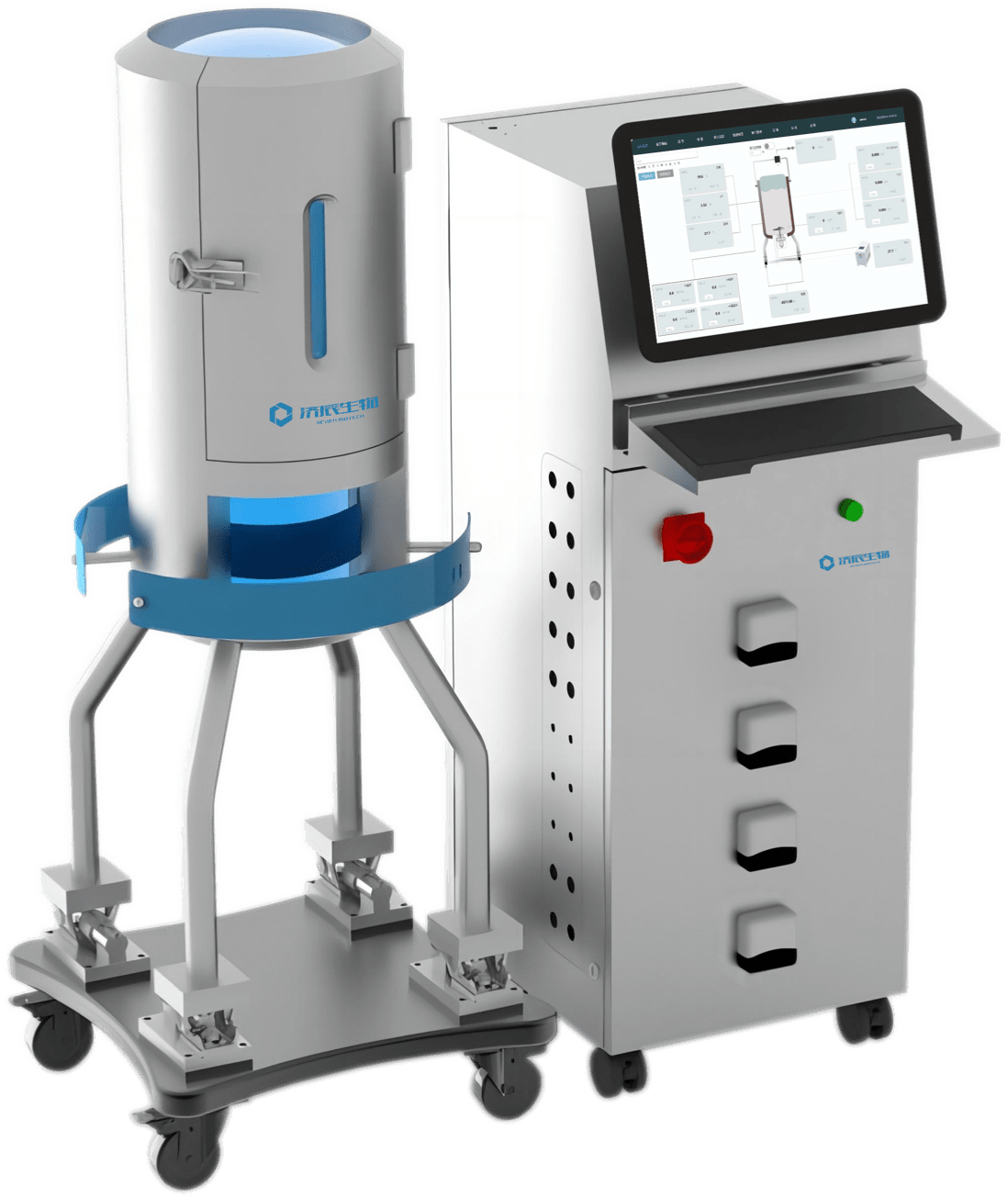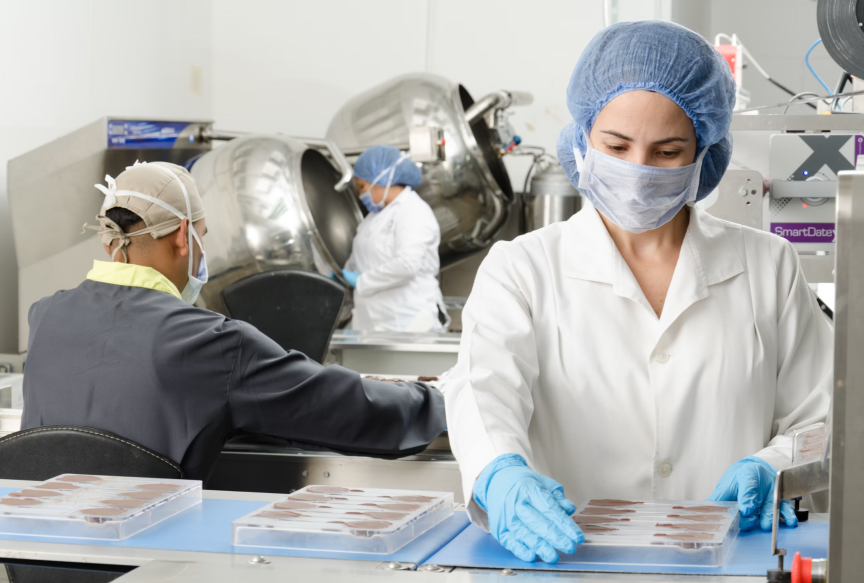Bioreactor is an important equipment in the field of biotechnology, which is widely used in the fields of biopharmaceuticals, food, environmental protection and so on. In this paper, we will introduce the working principle of bioreactor in detail and discuss its application in biopharmaceutical industry.
Working Principle of Bioreactor
1. Basic Concepts of Bioreactor
A bioreactor is a vessel used for biochemical reactions to achieve biomass augmentation and production of target products by mimicking the environment of a living organism and providing suitable conditions for the growth and propagation of microorganisms, cells or enzymes.
2. Composition of a bioreactor
The bioreactor mainly consists of the following parts:
(1) Reactor body: used to load reactants such as culture medium, microorganisms, cells or enzymes.
(2) Stirring device: to make the substances in the reactor fully mixed by stirring, and to improve the effect of mass and heat transfer.
(3) Temperature control system: keep the temperature in the reactor constant to meet the needs of the growth of organisms.
(4) pH control system: adjust the pH value in the reactor to ensure the normal growth of organisms.
(5) Oxygen supply device: provide oxygen for aerobic microorganisms to increase biomass.
3. Working Principle of Bioreactor
(1) Inoculation: Inoculate microorganisms, cells or enzymes, etc. into the reactor.
(2) Cultivation: growth, reproduction and metabolism of organisms under suitable conditions of temperature, pH, dissolved oxygen etc.
(3) Product generation: the organism produces the target product through metabolism.
(4) Separation and purification: the target product in the reaction solution is separated and purified to obtain the final product.
Bioreactors in the biopharmaceutical industry
1. Microbial fermentation
Microbial fermentation is an important process in the biopharmaceutical industry, in which bioreactors play a key role. Through fermentation, microorganisms can produce antibiotics, enzymes, vitamins, organic acids and other substances. The bioreactor provides a good growth environment for microorganisms and realizes a highly productive and efficient fermentation process.
2. Plant and animal cell culture
Plant and animal cell culture technology is another important field in the biopharmaceutical industry. Bioreactors provide a suitable growth environment for cells and realize the large-scale expansion of cells. On this basis, biological products such as vaccines, antibodies and interferons can be produced.
3. Enzyme-catalyzed reactions
Bioreactors have a wide range of applications in enzyme-catalyzed reactions. Through immobilized enzyme technology, the enzyme is immobilized in the reactor to achieve continuous and efficient catalytic reaction. The enzyme-catalyzed reaction has important application value in pharmaceutical, food, environmental protection and other fields.
4. Genetic engineering
Bioreactors are also important in the field of genetic engineering. Through genetic engineering techniques, target genes are introduced into microorganisms and cells to realize the production of target products. Bioreactors provide a good growth environment for genetically engineered bacteria and increase the product yield.
The development trend of
1. Bioreactor design optimization: optimize the reactor structure, material and operation parameters for the production needs of different biological products to improve the production efficiency.
2. Intelligent control: Real-time monitoring and intelligent control of bioreactors by using IoT, big data and other technologies.
3. System integration: integrate the bioreactor with other biopharmaceutical equipment to realize automated and continuous production.
4. Green: Reduce the energy consumption of the bioreactor, reduce the emission of pollutants, and improve the utilization of resources.
In short, bioreactors have a wide range of application prospects in the biopharmaceutical industry. With the continuous development of biotechnology, bioreactors will play an increasingly important role in China's biopharmaceutical industry.
